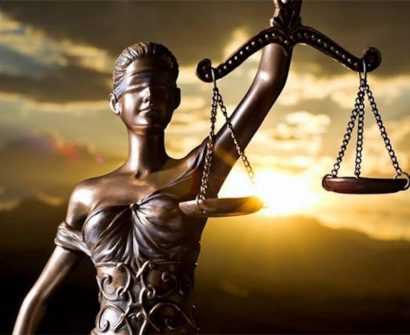
One of the first rulings on the Indian Supreme Court’s right to privacy was this one. When debating the validity of the 1898 Criminal Procedure Code (CrPC) inquiry and seizure articles, an eight-member committee of the court also touched on the right to privacy and its relationship to article 20 3 of the indian constitution talked about. In that decision, the court determined that the search and document seizure did not violate article 20 3 of the indian constitution since they did not amount to “compulsory testimony”.
mp sharma vs satish Chandra Case Facts
- A corporation that went into liquidation in 1952 was the subject of an investigation by the Indian government under the companies act of 1913.
- The basis for the investigation was the company’s alleged attempt to falsify records and balance sheets in order to steal money and hide the real situation from shareholders.
- According to the Indian Penal Code, 1860, the dishonest and fraudulent transactions would be considered a number of offenses.
- In 1953, a formal complaint was filed and a request for a search warrant was made to the District Magistrate in accordance with section 96 of the crpc. The warrant was issued by the District Magistrate, and thirty-four separate locations underwent concurrent searches and seizures.
- In a Supreme Court petition, the petitioner asked for the return of the documents that had been taken as well as the quashing of the search warrants due to their violation of Articles 19(1)(f) and 20(3).
mp sharma vs satish Chandra Issues
- Does the petitioner’s basic right against self-incrimination under Article 20(3) of the Indian Constitution have been violated as a result of the aforementioned searches?
- Whether the search in question violates the basic right under Article 19(1)(f) to obtain, keep, and dispose of property?
Contentions by the Petitioner:
- The petitioner claimed that Article 19 (1) (f) of the right to acquire, own, and dispose of property was broken by the investigation.
- They argued that because their buildings were broken into, their documents were seized, and their reputation was tarnished, the search was irrational and a violation of their rights.
- Additionally, the petitioner claimed that the requirement of mandatory self-incrimination in the constitution was broken by the document search. The petitioner contended that the reach of Article 20 (3) should encompass both written and oral testimony, citing US case law in support of their claim.
- The petitioner contended that since the search served as a stand-in for the subpoena’s forced surrender, it constituted coerced testimony that was illegal under Article 20 (3). The petitioner used the Supreme Court’s ruling on how to interpret the US Constitution’s fourth amendment to bolster this claim.
mp sharma vs satish Chandra Judgment
- The right to own and enjoy property is unaffected by a search. Undoubtedly, the act of seizure and evacuation limits the number of commodities that can be possessed or used. However, this is only a temporary fix while the inquiry is ongoing. Therefore, a search and seizure are just a brief infraction of the right to have the area searched and the items removed. In this sense, legislative regulation is necessary, and acceptable limitations cannot be deemed to be unconstitutional in and of themselves.
- In the event that the temporary measure is considered to be beyond the scope of the law, the ensuing harm will be the focus of additional legal procedures. The court goes on to say that they cannot understand how the warrants in question might be connected to any breach of Article 19(1)(f) of the constitution. These warrants claim to fall under the first possible interpretation of Criminal Procedure Code Section 96(1).
- The Honorable Court held that the protection against self-incrimination principle, which is one of the core tenets of the Common law when it comes to criminal jurisprudence, is embodied in Article 20(3) of the Indian Constitution, which talks about the right against self-incrimination. The court went on to explain that the idea originated from a disgust with the inquisitorial procedures used in the pretrial phase as well as the cruel and brutal punishments the court meted out while exercising its criminal jurisdiction, just as it did under English law.
- The aforementioned principle was upheld in the John Liburn case, which led to the widespread and unwavering acceptance of the idea that an accused person should not be placed under oath or utilized as a source of evidence during both the pre-trial or trial phases of the legal system.
- In the Weeks v. United States decision, it was further decided that any kind of evidence, including papers, gathered by arbitrary searches and seizures was not acceptable in a court of law.
With the goal of giving students the best coaching available for law entrance exams including the CLAT, AILET, and various other numerous state judiciary exams, Jyoti Judiciary Coaching, India’s Finest educational Platform, was established. Come enrol now with Jyoti Judiciary!
For any latest news, legal topics, judiciary exams notifications, patterns, etc watch Jyoti Judiciary’s YouTube channel for legal videos for any updates at https://youtube.com/@jyotijudiciarycoaching4852?si=2cwubh9d2A9urwJf








